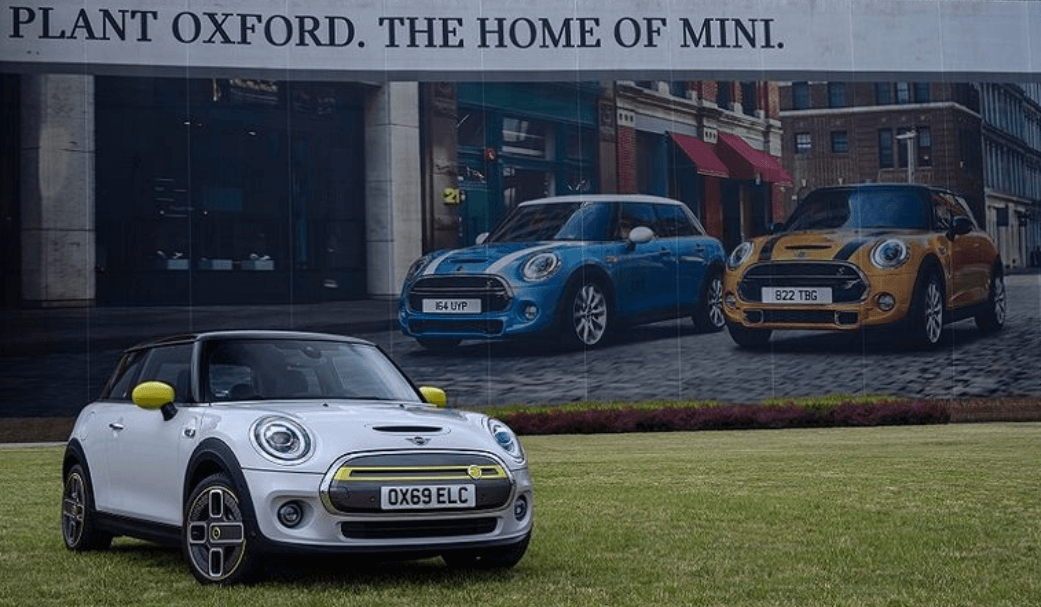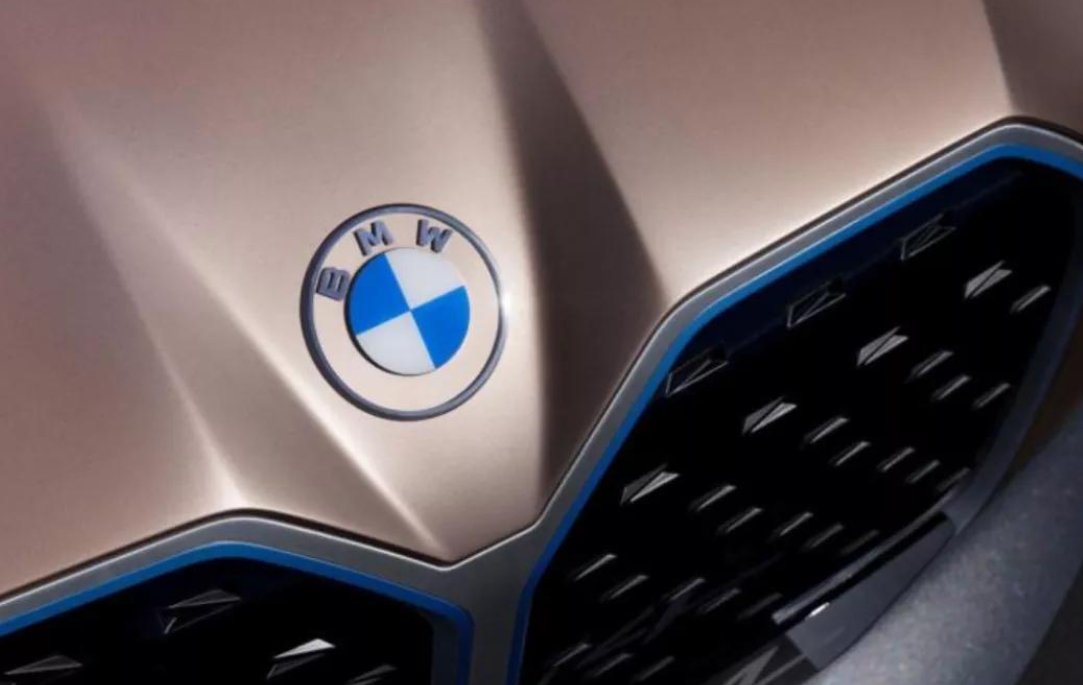A few days ago, the BMW Group announced that it will continue to increase its efforts in the direction of electrification. After 2025, the MINI brand will fully focus on the pure electric field. Prior to this, Jaguar Land Rover also announced that by 2025, the Jaguar brand will transform into a pure electric vehicle brand. As early as 2017, Polestar, Volvo's high-performance division, announced that it has become an independent brand, focusing on the field of high-end electric vehicles.

Picture source: MINI official
Whether it’s BMW’s MINI, Jaguar under Jaguar Land Rover, or Polestar under Volvo, it is one of the brands under the car company. So, these luxury car companies choose to take the lead in pushing a certain brand from the field of fuel vehicles to the electric track. What are the factors behind them?
Driven by electrification
With the development of new energy vehicles to this day, the concept of electrification has become an industry consensus on a global scale. When Tesla's market value surpassed Toyota and Volkswagen, traditional car companies were firm in their determination to transform into the electrification field. In recent years, the German luxury three giants have made frequent moves in the field of electrification. This year, they have each set bolder goals.
The BMW Group announced at the 2020 annual results conference held not long ago that this year, the BMW Group will launch pure electric BMW iX and BMW i4. By 2023, BMW Group will provide about 12 pure electric models worldwide; by 2025, BMW will Deliver 2 million electric vehicles worldwide. Of course, this also includes the aforementioned MINI brand's full-line electrification strategy in 2025.

Image source: BMW official
Audi also expressed its determination to deepen its electrification strategy at the 2020 financial report annual meeting. In addition to continuing to deepen the Chinese market and expanding electrified products, Audi also plans to deliver a third of all new cars globally in 2025. Hybrid models. By 2030, Audi A6 and Audi A4 will all be transformed into pure electric models.
Mercedes-Benz also recently stated that in order to realize the "Vision 2039" (to achieve carbon neutrality in the new lineup of passenger cars by 2039), it plans to achieve more than 25% of its sales as pure electric vehicles by 2025. ; By 2030, plug-in hybrid and pure electric vehicles will account for more than 50% of global sales.
In addition to the three German luxury giants, the aforementioned Jaguar Land Rover and Volvo have also formulated a clearer electrification development route. From this point of view, in this unprecedented energy revolution in the automotive industry, all car companies cannot stay aloof. The next thing they are competing against is who can achieve carbon neutrality more quickly.
Rely on fuel vehicles to provide profits
Transformation to electrification is not a slogan. To be implemented in tangible actions, a lot of manpower, financial resources, and material resources are required. Under the objective environment of the spread of the epidemic and the global economic downturn, where does the money come from has become an urgent problem that traditional car companies in transition have to face.
Looking at the financial reports of major auto companies for 2020, we will find that most auto companies’ revenue and net profit for the 2020 fiscal year have shown a downward trend. Of course, there is a direct impact of the decline in sales performance caused by the epidemic, but Nor can we rule out the high costs of enterprises transforming to electrification. To this end, the "group synergy" and "cost reduction and efficiency increase" have become the main theme of most car companies in recent years.
Electric cars, luxury cars, sales, luxury car companies, BMW, Jaguar Land Rover, MINI
However, for luxury car companies, despite the decline in sales and revenue in 2020, profits are still considerable. For example, Mercedes-Benz and Audi have a sales return rate of more than 5% in 2020. Where do these profits come from? Obviously, it is the profits brought by their respective fuel vehicles. Although the major luxury car companies are accelerating their electrification strategy, there are very few who can really benefit from electric vehicles at this stage, so these luxury car companies have to use the profits of fuel vehicles to fill in new electrified models. In development.
This also explains that BMW, Jaguar Land Rover, Volvo, etc. have taken the lead in switching to electrified racetracks with a single brand, while the main brand models are gradually transitioning from fuel vehicles to electrified models. The purpose is to continue to absorb fuel vehicles. Profit.
Reduce risks and deal with market uncertainties
Further speaking, although the annual sales of ner energy vehicles have been greatly improved today, their proportion is still small compared with the huge fuel vehicle market. Taking the sales volume in 2020 as an example, the data from the Federation of Passenger Transport Association shows that the total global car sales in 2020 is 78.03 million vehicles, a year-on-year decrease of 13%; according to data compiled by the Swedish EV-volumes.com company, the global sales of new energy vehicles in 2020 It was 3.24 million vehicles, a year-on-year increase of 43.36%. Based on this calculation, the sales of new energy vehicles will account for approximately 4.15% of global vehicle sales in 2020.
Gasgoo Research Institute analysts believe that at this stage, new energy vehicles still have many areas that can be improved in terms of battery safety and charging convenience. These factors are also the key to the rapid popularization of electric vehicles. However, with the improvement of new energy vehicle infrastructure construction and the reduction of the cost of electric vehicles under the industrial synergy effect, electric vehicles will develop rapidly.
Gasgoo Research predicts that by 2030, China's new energy passenger vehicle sales will account for 30%-35% of total passenger vehicle sales. The latest research report provided by Canalys shows that by 2028, global electric vehicle sales will increase to 30 million; by 2030, electric vehicles will account for nearly half of global passenger vehicle sales.
Judging from the above data, the market position of new energy vehicles and fuel vehicles can be "equalized", and it will not be realized until 2030 at the earliest. This is another major factor that prevents traditional car companies from moving to the electrification field easily. Industry analysts believe that brands such as MINI and Jaguar are the first to enter the field of electrification. For the car companies where they are located, they can greatly reduce risks when users have limited acceptance of electric vehicles.
AMS2024 Exhibition Guide | Comprehensive Exhibition Guide, Don't Miss the Exciting Events Online and Offline
Notice on Holding the Rui'an Promotion Conference for the 2025 China (Rui'an) International Automobile and Motorcycle Parts Exhibition
On September 5th, we invite you to join us at the Wenzhou Auto Parts Exhibition on a journey to trace the origin of the Auto Parts City, as per the invitation from the purchaser!
Hot Booking | AAPEX 2024- Professional Exhibition Channel for Entering the North American Auto Parts Market
The wind is just right, Qianchuan Hui! Looking forward to working with you at the 2024 Wenzhou Auto Parts Exhibition and composing a new chapter!
Live up to Shaohua | Wenzhou Auto Parts Exhibition, these wonderful moments are worth remembering!
Free support line!
Email Support!
Working Days/Hours!





